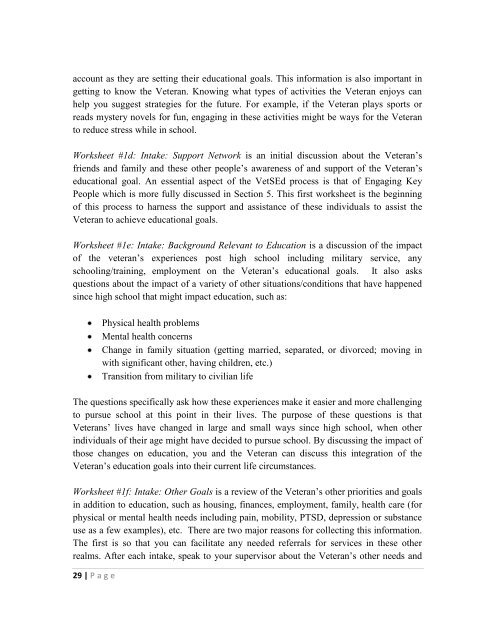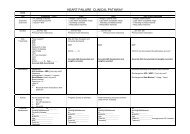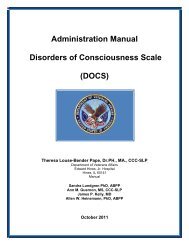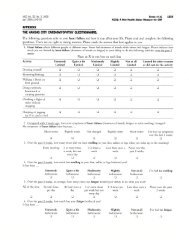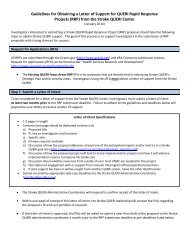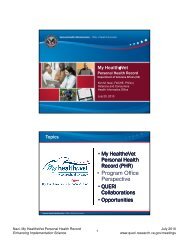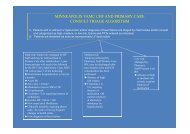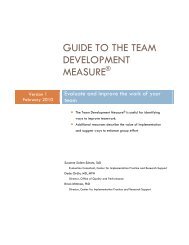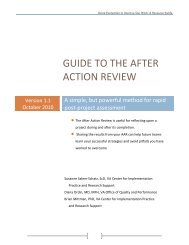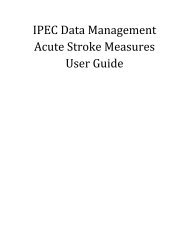The Veteran Supported Education Service Treatment Manual: VetSEd
The Veteran Supported Education Service Treatment Manual: VetSEd
The Veteran Supported Education Service Treatment Manual: VetSEd
You also want an ePaper? Increase the reach of your titles
YUMPU automatically turns print PDFs into web optimized ePapers that Google loves.
account as they are setting their educational goals. This information is also important in<br />
getting to know the <strong>Veteran</strong>. Knowing what types of activities the <strong>Veteran</strong> enjoys can<br />
help you suggest strategies for the future. For example, if the <strong>Veteran</strong> plays sports or<br />
reads mystery novels for fun, engaging in these activities might be ways for the <strong>Veteran</strong><br />
to reduce stress while in school.<br />
Worksheet #1d: Intake: Support Network is an initial discussion about the <strong>Veteran</strong>‘s<br />
friends and family and these other people‘s awareness of and support of the <strong>Veteran</strong>‘s<br />
educational goal. An essential aspect of the <strong>VetSEd</strong> process is that of Engaging Key<br />
People which is more fully discussed in Section 5. This first worksheet is the beginning<br />
of this process to harness the support and assistance of these individuals to assist the<br />
<strong>Veteran</strong> to achieve educational goals.<br />
Worksheet #1e: Intake: Background Relevant to <strong>Education</strong> is a discussion of the impact<br />
of the veteran‘s experiences post high school including military service, any<br />
schooling/training, employment on the <strong>Veteran</strong>‘s educational goals. It also asks<br />
questions about the impact of a variety of other situations/conditions that have happened<br />
since high school that might impact education, such as:<br />
29 | P a g e<br />
Physical health problems<br />
Mental health concerns<br />
Change in family situation (getting married, separated, or divorced; moving in<br />
with significant other, having children, etc.)<br />
Transition from military to civilian life<br />
<strong>The</strong> questions specifically ask how these experiences make it easier and more challenging<br />
to pursue school at this point in their lives. <strong>The</strong> purpose of these questions is that<br />
<strong>Veteran</strong>s‘ lives have changed in large and small ways since high school, when other<br />
individuals of their age might have decided to pursue school. By discussing the impact of<br />
those changes on education, you and the <strong>Veteran</strong> can discuss this integration of the<br />
<strong>Veteran</strong>‘s education goals into their current life circumstances.<br />
Worksheet #1f: Intake: Other Goals is a review of the <strong>Veteran</strong>‘s other priorities and goals<br />
in addition to education, such as housing, finances, employment, family, health care (for<br />
physical or mental health needs including pain, mobility, PTSD, depression or substance<br />
use as a few examples), etc. <strong>The</strong>re are two major reasons for collecting this information.<br />
<strong>The</strong> first is so that you can facilitate any needed referrals for services in these other<br />
realms. After each intake, speak to your supervisor about the <strong>Veteran</strong>‘s other needs and


